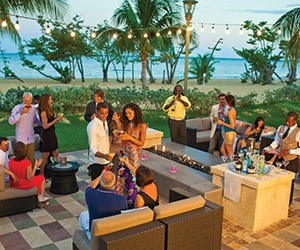What’s a more effective motivator, cash or a luxury incentive at an amenity-loaded resort?
While you might expect money to be the biggest mover of all, a study by the Aberdeen Group suggests non-cash incentives, specifically travel, have more impact and lasting value.
The Aberdeen Group is a 26-year-old Boston-based firm specializing in business intelligence research.
According to the study, “employees think more frequently about these [travel] awards, even when they are equal to cash, and the increased interest leads to higher performance.”
To those outside the industry who don’t fully grasp the travel incentive concept, the trips might appear like glorified vacations—with few business goals, and days filled by playing golf and sipping poolside margaritas.
It’s an unfair stereotype because travel incentives have a viable return on investment (ROI) by helping increase sales, generating solid leads, exciting potential clients about products and providing a memorable venue for long-lasting business relationships.
“In a separate ‘Sales Performance Management’ study by Aberdeen, it found that organizations that provide non-cash rewards and recognition had a 1.6 percent year-over-year increase in team attainment of quota, versus a decrease of 2.2 percent for all others,” says David Gabri, CEO of Associated Luxury Hotels International (ALHI), which represents more than 160 luxury hotels and resorts to the meetings and incentives marketplace.
“People are very motivated by something they can’t, or won’t, necessarily experience on their own,” he adds.
While infinity pools, spas, golf courses and gourmet dining are exciting for attendees, it’s often the heightened personalized service at a luxury resort that makes a more lasting impression.
“Things like butler service, valet parking, turndown service and gift drops make the participant feel important and valued by their company,” says Mark Goodwin, director of group sales for the Sea Pines Resort on Hilton Head Island, S.C.
PageBreak
Marvelous Motivation
“Incentive programs at luxury-level facilities that combine physical beauty and extraordinary services are uniquely able to create that [unforgettable] experience,” ALHI’s Gabri says.
Great memories increase drive and focus, notes Kimberley Abel, vice president of employee solutions at Maritz Motivation Solutions in Fenton, Mo.
“The main reason for a high-end travel incentive is to create a motivating once-in-a-lifetime experience, a lasting memory that will be talked about and shared by participants,” she says. “Many people who qualify for these types of trips can afford to buy themselves what they want, but they value time, travel and experiences.”
The destination selected for the incentive program increases the appeal.
According to “The Participant’s Viewpoint,” a study by the Site International Foundation, more than 70 percent of the respondents cited the destination and/or resort choices as a strong motivational aspect of a program.
“An organization can maximize the motivational aspect of a program by strategically planning a trip location and duration,” says Kevin Hinton, chief staff officer for SITE and the Site International Foundation.
Failure to fully research the demographics and goals of an incentive group can directly impact the success of the program. For instance, financial services companies are ideal candidates for an upscale resort.
“Since the purpose of an incentive trip is to motivate them to improve their work performance, the reward has to be something worth working to achieve,” says Bruce Tepper, a business consultant specializing in meetings and incentive program design with Joselyn, Tepper & Associates, headquartered in Scottsdale, Ariz.
The opulent Adare Manor Hotel and Golf Resort, in Limerick, Ireland, featuring a stunning castle hotel, is one solid example.
“When they arrive they’re blown away by the luxury, and it results in better morale, teambuilding and networking,” says Gillian Griffin, sales manager.
Goal Setting
Reaching and exceeding sales goals is a key driver of travel incentives.
“About three-fourths of all incentive programs revolve around the sales or purchases of products or services,” Tepper says.
Additionally, luxury travel incentive trips are constant motivators, not isolated events.
“The engagement level, company loyalty and personal drive to achieve and thus be invited to the following year’s event is a motivating factor for the company and attendee,” says Michele Wilde, director of conference services at The Breakers in Palm Beach, Fla. “If history is any indication, we have numerous repeat events.”
Edward Schmidt Jr. is a frequent contributor to Meetings Focus.






